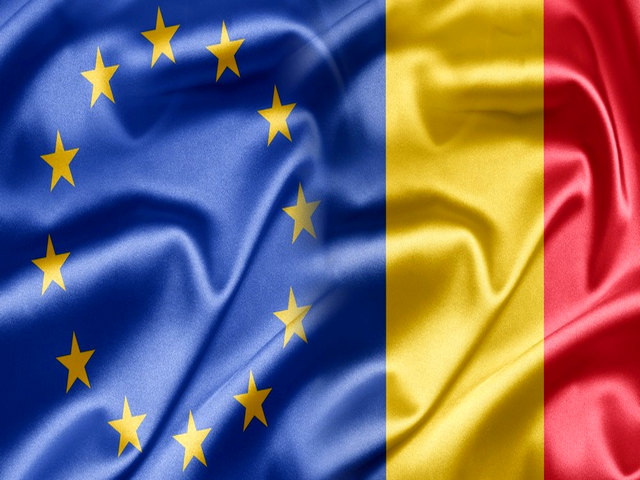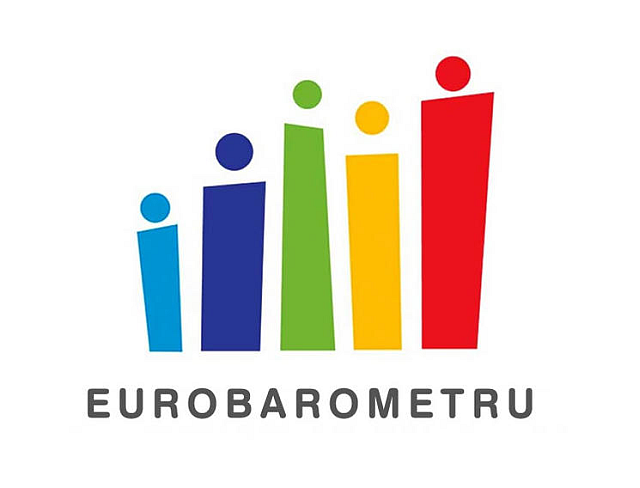Liebe Freunde, herzlich willkommen zur Hörerpostsendung von RRI. Heute möchte ich einen einzigen ausführlichen Hörerbrief zitieren, der Anlass zu mehreren Ausführungen zu diversen Themen gibt.
Fritz Andorf ist in Meckenheim (NRW) zu Hause und meldete sich unlängst per E-Mail mit Eindrücken von unserem Programm:
Liebe Mitglieder der deutschsprachigen RRI-Redaktion,
nach dem Ende der Sommerzeit und dem damit verbundenen Frequenzwechsel am letzten Oktobersonntag habe ich natürlich den Empfang auf allen Frequenzen untersucht. Und ich kann Ihren Technikern wieder ein großes Kompliment machen, denn sie haben erneut eine sehr gute Wahl getroffen. Der Empfang ist auf allen Frequenzen gut und störungsfrei. Damit sollte die Kurzwelle noch eine Weile erhalten bleiben.
Einige Bemerkungen zum heutigen Programm: In den Nachrichten war die Präsidentenwahl in Moldawien eine Schlagzeile. Nun, inzwischen steht das Ergebnis fest, und ich habe mich doch sehr gewundert, dass man ausgerechnet den Russland-freundlichen Kandidaten, und nicht den EU-Befürworter gewählt hat. Da frage ich mich, ob auch in Rumänien eine EU-kritische Stimmung herrscht und man sich lieber nach Russland orientieren will.
Aufgefallen ist mir auch die meines Erachtens recht hohe Zahl von 466 Parlamentsabgeordneten in Rumänien.
Etwas traurig macht mich die europaweit höchste Zahl von Schwangerschaften im jugendlichen Alter. Da kann doch etwas nicht mit der Sexualerziehung oder dem Zugang zu Verhütungsmitteln stimmen.
Anfang des Monats haben meine Frau und ich einen 8-tägigen Urlaub in Malta verbracht. Obwohl nur 2.000 km südlich gelegen, war es dort noch bedeutend wärmer, man konnte sogar noch im Meer baden, und der Regenschirm blieb im Koffer. Nach Malta fährt man allerdings nicht, um dort einen Badeurlaub zu machen, denn die Küste ist stark zerklüftet und hat nur wenige Badebuchten. Dafür ist sie malerisch reizvoll. Malta hat eine große Geschichte mit Überresten aus vielen Epochen. Es ist sozusagen Stein-reich“, also stark bebaut und mit nur wenigen Bäumen. Die alte Hauptstadt Mdina mitten auf der Insel ähnelt mit ihren engen Gassen zwischen den hohen Häusern ganz einer arabischen Stadt. Die jetzige Hauptstadt Valletta ist im kommenden Jahr Kulturhauptstadt Europas“. Die maltesische Sprache ist eine Mischung aus Arabisch und Italienisch. Erstaunlich voll war der Sonntagsgottesdienst in diesem überwiegend katholischen Land. Wir haben zwar kein Wort der maltesischen Sprache verstanden, aber es war trotzdem eindrucksvoll, vor allem der Gesang der beiden jungen Vorsängerinnen mit ihrer Gitarre. Aber da Englisch zweite Amtssprache ist, hatten wir ansonsten keine Verständigungsschwierigkeiten. Keine Probleme gibt es auch mit dem Geld, weil Malta seit 2008 Euro-Land ist. Es war jedenfalls eine lohnenswerte Reise in dieses kleine Land mit seinen nur 400.000 Einwohnern, verteilt auf zwei große Inseln.
Lieber Herr Andorf, vielen Dank für Ihr ausführliches Feedback. Sie haben recht viele Sachen angesprochen, auf die ich Punkt für Punkt eingehen will. Zunächst einmal zu den Wahlen in der Moldaurepublik: Es stimmt, dass der prorussische Kandidat die Wahl gewonnen hat, aber der Sieg war nur knapp erzielt. Mit 52% gegen 48% der Wahlstimmen setzte er sich im zweiten Wahlgang durch, während seine proeuropäische Kontrahentin vom ersten zum zweiten Urnengang sogar um 10 Prozent zulegte. Das ist umso mehr erstaunlich, da Maia Sandu keine großen Parteistrukturen wie der Sozialist Igor Dodon hinter sich hatte und daher eher auf freiwillige Wahlhelfer und soziale Netzwerke setzte. Dementsprechend wählten eher junge Stadtbewohner Sandu, während ältere Landbewohner überwiegend für Dodon stimmten. Auch gab es eine massive Wahlbehinderung im Ausland. Ähnlich wie bei den Wahlen 2014 in Rumänien wurden Auslandsmoldauer durch diverse Methoden daran gehindert, ihre Stimme abzugeben — beispielsweise durch unzureichend vorhandene Wahlzettel in den Wahllokalen. Die Moldaurepublik bleibt also ein zutiefst gespaltenes Land und hoffentlich kommt es zu keinen gewalttätigen Auseinandersetzungen. Es bleibt auch abzuwarten, was der neue Präsident tatsächlich tun wird, denn trotz seiner Ankündigung, sein Land näher an Russland zu führen und die Annäherung an Europa wieder rückgängig zu machen, dürfte Igor Dodon es dennoch nicht leicht haben, seine Wahlversprechen zu erfüllen. Experten sind da der Meinung, dass man z.B. das Assoziierungsabkommen mit der EU nicht einfach mit einem Fingerschnippen außer Kraft setzen kann.
Was Rumänien anbelangt, sehe ich kurz- und mittelfristig kein Umschwenken in der geopolitischen Orientierung und erst recht nicht eine Annäherung an Russland. Die Rumänen sind immer noch erstaunlich europafreundlich gesinnt — ein Eurobarometer von Ende 2015 ergab, dass 72% der Rumänen der Auffassung waren, dass die Mitgliedschaft in der EU dem Land Vorteile gebracht habe. Und 64% meinten, dass die EU-Mitgliedschaft generell eine gute Sache sei.Mehr noch: Eine weitere rumänische Meinungsumfrage vom Juli 2015 zum Thema Brexit beinhaltete u.a. die Frage Wie würden Sie abstimmen, wenn man auch in Rumänien ein Referendum über den Austritt aus der EU abhalten würde?“. 77% der Befragten äußerten sich für den Verbleib in der EU.
Eine Umorientierung hin zu Russland ist daher in Rumänien mittelfristig unwahrscheinlich, zumal Russland alles andere als ein positives Image hat. Eine von einer rumänischen Zeitung zitierte Umfrage von Ende 2015 fand Interessantes über Feindbilder heraus. So glauben über ein Drittel (35%) der Rumänen, dass Russland der größte Feind Rumäniens sei. Unter den befreundeten Ländern rangieren hingegen die USA mit 24% und Deutschland mit 20% auf den ersten beiden Plätzen. 51% glauben, dass Russland eine Gefahr für die Sicherheit Rumäniens darstelle, aber zugleich sind 49% der Auffassung, dass Rumänien im Falle eines Konflikts zwischen Russland und einem anderen Land sich neutral verhalten solle. Diese Abneigung gegenüber Russland ist historisch aus der Angst vor einem übermächtigen und unberechenbaren Nachbarn erwachsen. Und die Töne aus Moskau tragen nicht unbedingt zum Abbau dieser Ressentiments ab. Gerade vor einigen Tagen gingen ein paar Bilder durch die Medien (im verlinkten Youtube-Video ca. ab Min. 1:00), die Präsident Putin bei einer Schulfeier oder so ähnlich zeigten. Dabei wurden einem vermutlich sorgfältig ausgelesenen Musterschüler seine Geographie-Kenntnisse abgefragt. Auf die Frage, wo die Grenzen Russlands endeten, die er mit in der Beringstraße“ richtig beantwortete, intervenierte Putin mit einem kühlen Lächeln und konterte: Die Grenzen Russlands enden nie.“ Das findet man im Baltikum, Rumänien oder Polen verständlicherweise gar nicht witzig, zumal man sich an einen Witz aus der kommunistischen Zeit erinnern mag. Da wird ebenfalls im Geographie-Unterricht gefragt, an welche Länder z.B. die Sozialistische Republik Rumänien grenze, eine Frage, die brav beantwortet wird. Auf die Folgefrage, an wen denn die Sowjetunion grenze, lautet die richtige Antwort: An wen sie will.“
Nach diesem Witz gehe ich zum nächsten Thema über: Schwangerschaften bei Minderjährigen in Rumänien. Da sind nicht Verhütungsmittel Mangelware in Rumänien, Sexualerziehung aber sehr wohl, denn im Unterricht wird Sexualkunde so gut wie gar nicht angeboten. Und wenn, dann laufen christliche Fundamentalisten und einige konservative Elternverbände dagegen Sturm. Die Diskussion gibt es auch in Deutschland, Frühsexualisierung“ lautet dort der Vorwurf, und bedient wird dieser Begriff meistens von der AfD und ihren Anhängern. Ich habe dazu einen sehr guten Artikel in der Zeit Online“ gelesen, aus dem ich ein paar aufschlussreiche Sätze zitieren möchte. Unter dem Titel Kampfbegriff Frühsexualisierung“ schreibt Uwe Sielert folgendes:
Mit dem Begriff der Frühsexualisierung wird suggeriert, Sexualpädagogik wolle Kinder und Jugendliche mit Themen konfrontieren, die nichts mit ihrem Leben zu tun hätten, als pflanze man die schuldige Sexualität der Erwachsenen in unschuldige Kinder. Sie würden als sexuelle Wesen betrachtet, obwohl das ihren Bedürfnissen und Lebensäußerungen widerspräche. Das Wort Frühsexualisierung impliziert, dass Kinder keine sexuellen Wesen seien, dass sie keine körperliche Neugierde, Lusterfahrungen, zärtlichen Gefühle oder Bindungs- und Beziehungswünsche hätten. Das widerspricht jedoch jeder wissenschaftlichen Evidenz und persönlichen Alltagserfahrung. […]
Die Angst, Kinder würden überfordert, muss sich also eher auf die Konsumindustrie und jene Eltern richten, die ihre Kinder mit aufreizenden Kleidungsstücken ausstatten, oder auf jene Familien, in denen die Kinder in sexuell getönte Auseinandersetzungen und erotische Konsumgewohnheiten hineingezogen werden. Dann passiert so etwas wie sexuelle Überforderung, die mit dem Begriff der Frühsexualisierung jedoch nicht adäquat beschrieben ist. Der Begriff ist also lediglich ein emotionalisierter Kampfbegriff ohne jeden inhaltlichen Sinn, der die Sexualerziehung diskreditieren soll. Dabei kann nur sexuelle Bildung Kinder und Jugendliche gegen die tatsächlichen gesellschaftlichen Gefährdungen — einschließlich des sexuellen Missbrauchs — stärken.“
Ich empfehle den Artikel wärmstens, er ist sehr gut argumentiert und bleibt sachlich.
|
Zu Ihrem Malta-Ausflug, lieber Herr Andorf, kann ich nur sagen: Ich war selber auf Malta vor einigen Jahren (ebenfalls nur auf der Hauptinsel), genauer gesagt war das im April 2008, kurz nach der Einführung des Euro, und mir hat es auf Malta genauso gut gefallen.
|
![src=http://devrri.freshlemon.ro/wp-content/uploads/2023/10/foto.jpg]()
|
| |
Ausblick über Hauptstadt Valletta von den Oberen Barrakka-Gärten aus (Foto: Sorin Georgescu) |
Und ich bin auch mal kurz in eine Sonntagsmesse reingegangen und war erstaunt, wie andächtig die Kirchengänger dem zelebrierenden Priester lauschten. Und selbst in der Messe kommt das interessante Gemisch von Arabisch und Italienisch zum Durchschein: Jesus wird Ġesù (wie im italienischen Gesù) und Gott schlicht Alla (wie im Arabischen) genannt, nur ein bisschen anders werden beide Wörter geschrieben. Die Sprache bleibt allerdings ein semitisches Idiom arabischen Ursprungs, auch wenn es vor italienischen, französischen und englischen Lehnwörtern nur so wimmelt und die Sprache mit lateinischen Buchstaben mit einigen Sonderzeichen geschrieben wird.
|
![src=http://devrri.freshlemon.ro/wp-content/uploads/2023/10/foto.jpg]()
|
Die alte Hauptstadt Mdina habe ich ebenfalls besucht, die engen Gassen zwischen den Mauern habe ich eifrig fotografiert, und ein Abstecher ins malerische Fischerdorf Marsaxlokk bot die Gelegenheit, die besten Meeresfrüchte zu kosten, die ich je gegessen habe. (Mdina“ bedeutet im Arabischen übrigens Stadt zwischen Mauern“.) |
| Hafen von Marsaxlokk (Foto: Sorin Georgescu) |
|
So, damit habe ich die Sendezeit verbraucht, ich hoffe, Sie fanden meine Ausführungen interessant, zum Schluss nur noch die Postliste:
Briefe lasse ich mir nächste Woche wieder zukommen. E-Mails erhielten wir bis vergangenen Samstagnachmittag von Klaus Nindel, Willi Seiser, Heinrich Eusterbrock, Herbert Jörger und Calvin Knott (alle aus Deutschland) sowie von Dmitrij Kutusow (aus Russland). Das Internetformular nutzten Christian Hieke und Peter Emde (aus Deutschland) sowie Paul Gager (aus Österreich).
Audiobeitrag hören:






